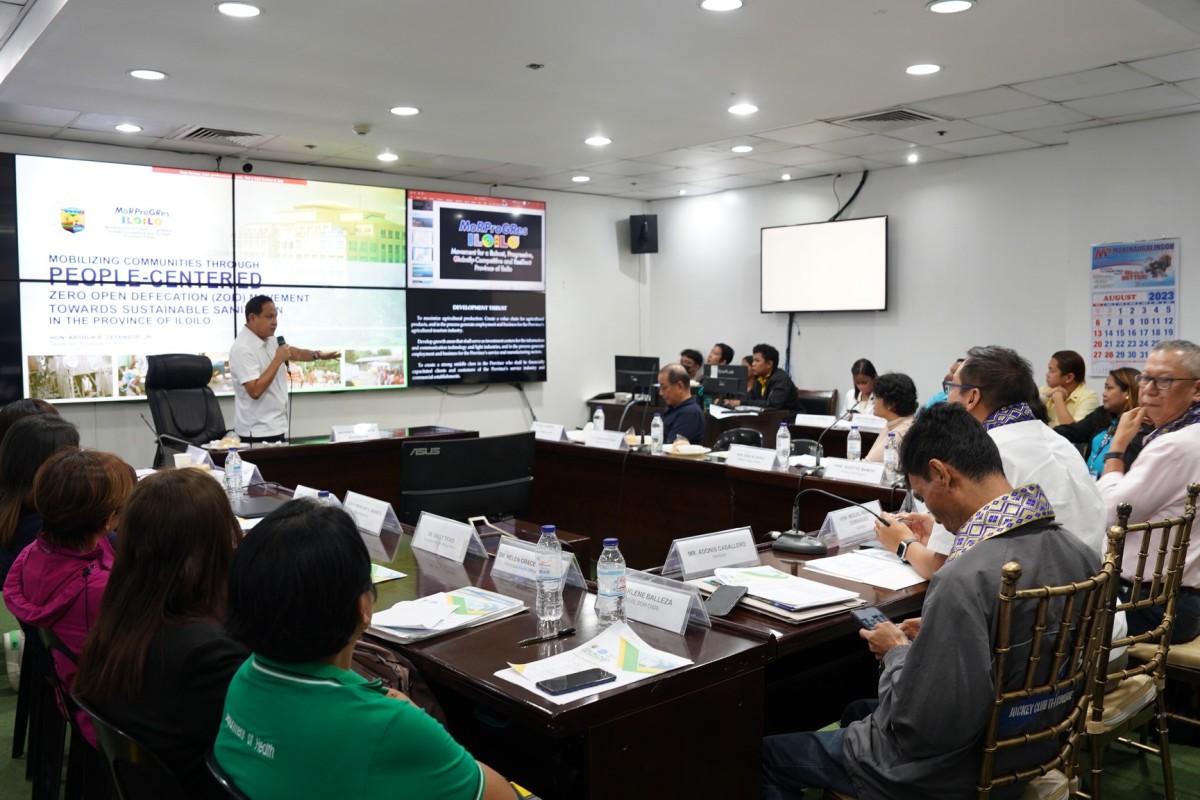ILOILO CITY (PIA6) – The zero open defecation (ZOD) campaign of Iloilo province, which is one of the commitments of the Iloilo provincial government to deliver better healthcare services and sanitation programs to the public, has been qualified for the 2023 Galing Pook Awards.
Iloilo Gov. Arthur Defensor Jr. recently presented Iloilo's entry dubbed “Mobilizing Communities through People-Centered Zero Open Defecation (ZOD) Movement towards a Sustainable Sanitation” to Galing Pook validators namely Dr. Jose Rene Gayo, Miguel Rene Dominguez and Adonis Caballero.
The Galing Pook Awards is an annual recognition program in the country that honors outstanding local governance initiatives. The awards aim to highlight and promote innovative and effective local governance practices and projects that have made a significant impact on their communities.
Defensor said that the province’s entry is a vital campaign to the community because it is a fundamental health project that contributes to the overall welfare of Ilonggos.
“The zero open defecation program strikes at the very heart of that concern (health). That is why it is very important to us,” the governor added,” the governor said.
It is noted that the United Nations Children’s Emergency Fund (UNICEF) first introduced ZOD to Iloilo after the onslaught of Typhoon Yolanda in 2013 and the province started its campaign in barangay and municipal levels in 2015, ensuring that there will be no defection in

open surroundings to prevent the contamination of water sources which could result in diseases such as typhoid, hepatitis, diarrhea, and amoebiasis, among others.
Since the start of the campaign, the provincial government allots an annual budget of P5 million for the purchase of toilet bowls, pipes, and cement to be given to the barangays for them to build toilets for every household.
Aside from the capital interventions, the provincial government also implemented different measures to achieve the ZOD status, and these include the institutionalization of the ZOD program through the passage of Provincial Ordinance No. 2018-179; adoption of the program in the municipal and barangay levels through the implementation of the Philippine Approach to Sustainable Sanitation (PhaTSS); organization of the Municipal Verification Teams (MVTs) task to certify and declare ZOD municipalities and barangays; and addressing the challenges in contamination of water sources in some areas that affect the sanitation program of the towns.
In November 2022, Iloilo was conferred by the Department of Health with the ZOD Grade 1 status after all the 1,721 barangays in the province had been certified as ZOD villages, making Iloilo as the first province in Western Visayas and third in the country to eradicate the unhygienic practice.
Defensor, on the other hand, stressed that the behavioral adjustments of the public and improvements in facilities are the key pieces for the province to sustain its ZOD status.
"In order for sustainability sa aton ZOD status, we must know the right way to use it. We must learn how to clean it and always, so those behavioural adjustments even as of now, we continue to struggle there and it will be a continuing campaign not only here in Iloilo but in the entire country (to practice it) so that we can sustain this campaign," Defensor previously said. (AAL/JNH/ PIA6 Iloilo)



